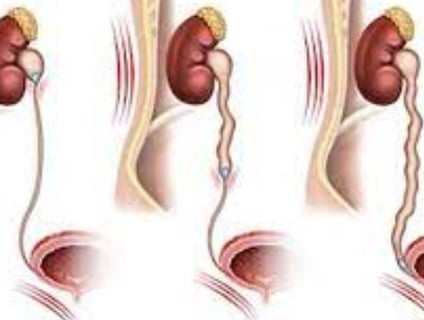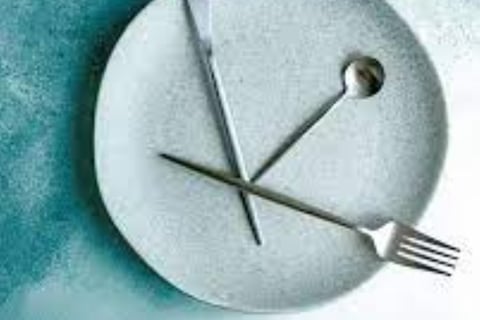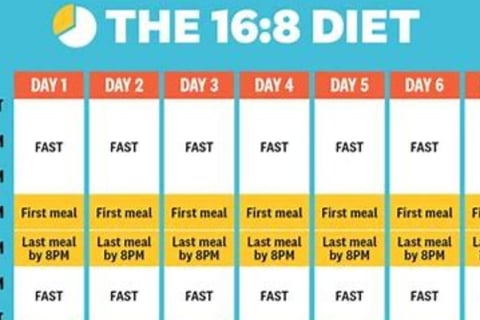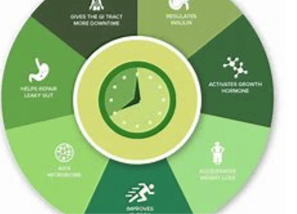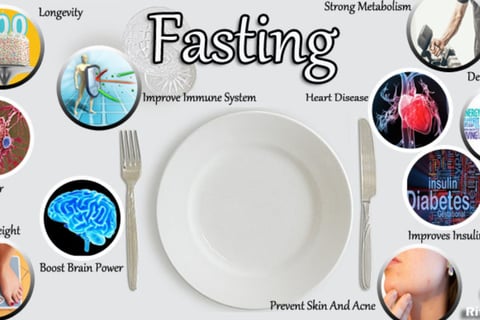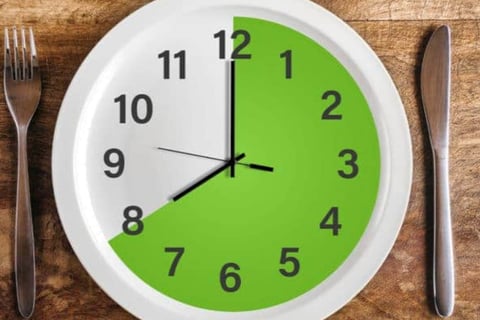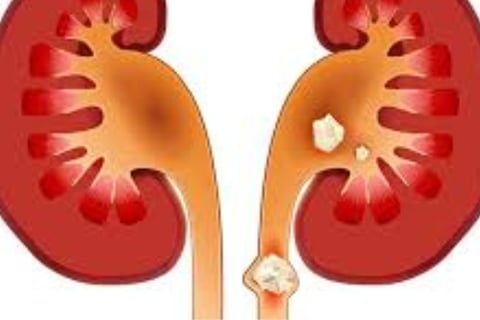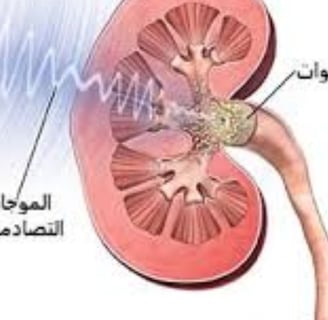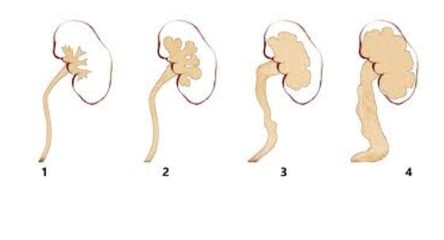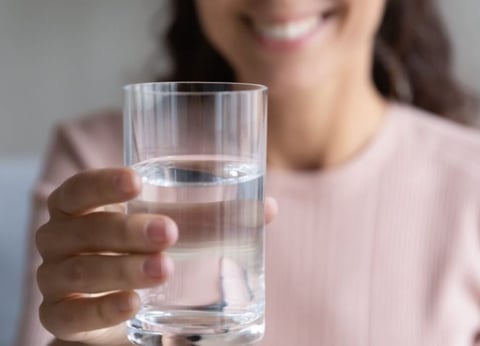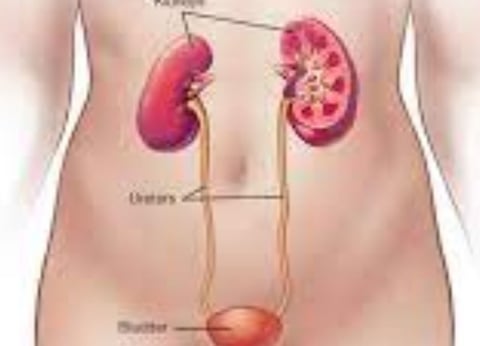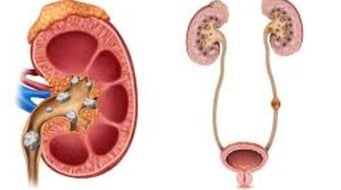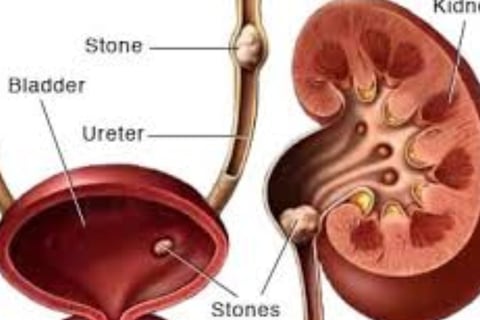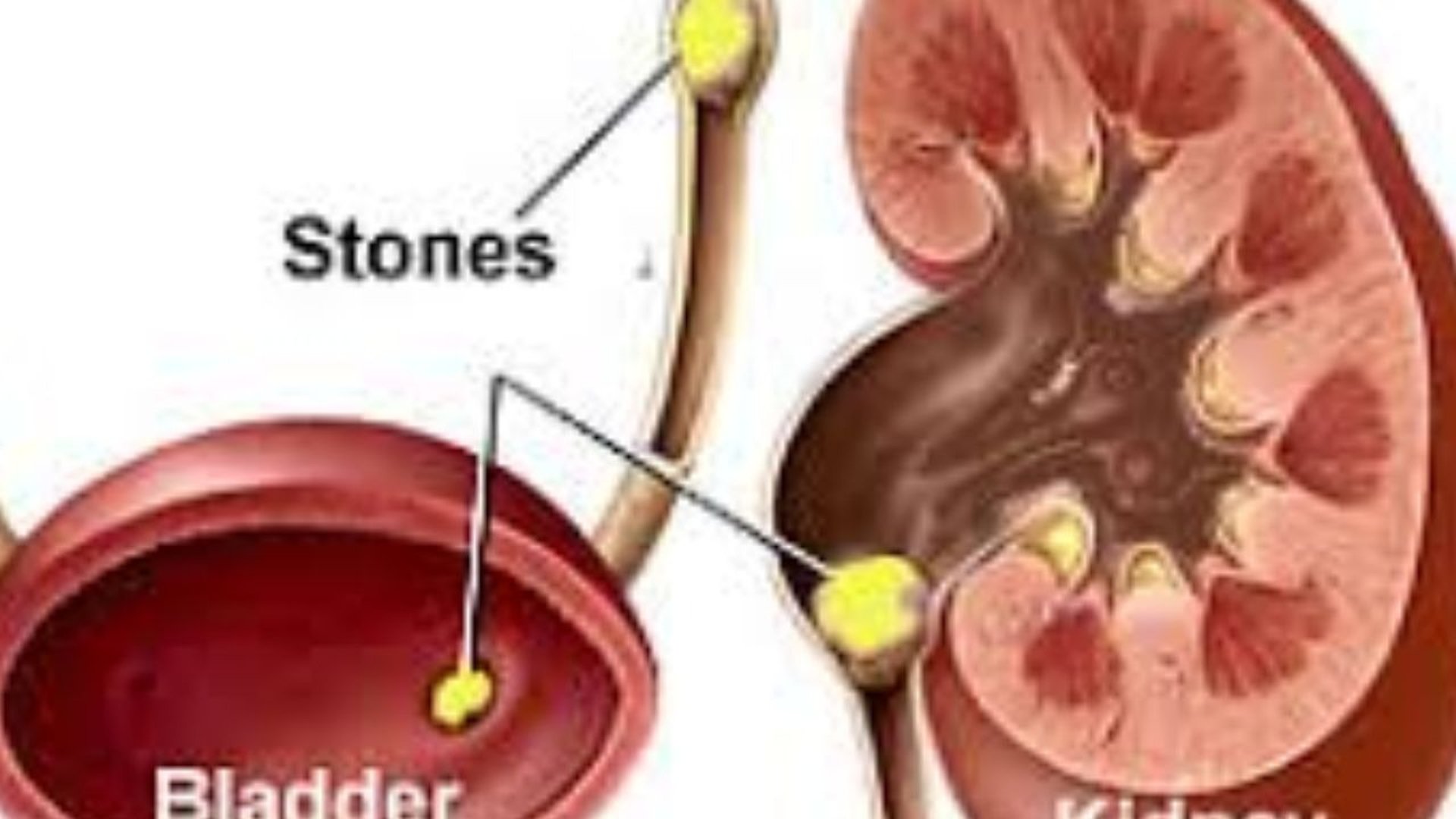
Can Urolithiasis ,Ckd Patients Do Fasting
Learn about the causes and prevention of kidney stones, impacted ureter stones, and bladder stones. Discover how fasting can protect against obesity, diabetes, and rheumatism caused by urinary salt...
KIDNY DISEASES
Dr Hassan Al Warraqi
6/8/2024
Kidney stones/impacted ureter stones/bladder stones
An impacted ureteral stone is a medical emergency that occurs when a kidney stone becomes stuck in the ureter.
It is the tube that transports urine from the kidney to the bladder
An impacted ureteral stone can cause severe back or abdominal pain, as well as other symptoms such as fever, chills, nausea, and vomiting.
It can get stuck in the ureter, causing a lot of pain, especially if its diameter exceeds 0.5 cm.
Causes of impacted ureteral stone
There is no specific reason that explains the occurrence of stones in some people and does not occur in others for an unknown reason
Ureteral stones usually occur when urine is too concentrated or contains too many minerals,
such as calcium, oxalate, or phosphate. These minerals can lead to the formation of crystals in the urine, which can accumulate and form stones
Prostate gland enlargement. An enlargement of the prostate (benign prostatic hyperplasia or benign prostatic hyperplasia) may cause bladder stones in men. An enlarged prostate can obstruct urine flow and prevent the bladder from completely emptying urine.
Damaged nerves: Normally, nerves carry messages from the brain to the bladder muscles, directing them to tighten or relax. If these nerves are damaged; Because of a stroke, spinal cord injury, or other health problems, the bladder may not empty completely. This is known as neurogenic bladder.
Stroke, spinal cord injury, Parkinson's disease, diabetes, herniated disc and a number of other problems can cause damage to the nerves that control bladder function.
There are several factors that can increase the risk of developing ureteral stones
Age: The chances of developing ureteral stones increase with age.
Gender: Men are more likely to develop ureteral stones than women.
Family history: If someone in your family has a history of ureteral stones, you are more likely to develop them.
Diet: A diet high in sodium, sugar, or animal protein can increase the risk of ureteral stones.
Obesity: Obesity can increase the risk of developing ureteral stones.
Some medications: Some medications, such as diuretics, can increase the risk of ureteral stones.
Some diseases: such as stroke, spinal cord injury, Parkinson’s disease, and diabetes, where the bladder does not empty completely.
Symptoms of impacted ureteral stone
Include
Severe pain in the back or abdomen, often on the right or left side
Pain when urinating
Blood in urine
Nausea and vomiting
Fever and chills
Problems with impaction, urinary retention, or kidney explosion, which require kidney surgical intervention
Urinary tract infection. Bladder stones can cause recurring bacterial urinary tract infections
Diagnosis
Clinical examination
Urine test
Computed tomography
Ultrasound (ultrasound)
X ray
Treatment of impacted ureteral stone
Treatment for an impacted ureteral stone depends on the size of the stone and its location. In some cases, the stone can pass on its own without treatment. If the pain is severe or if the stone is large, surgical medical treatment may be required.
There are many methods of treating impacted ureteral stones
Analgesics: All types of analgesics can be used to relieve pain.
Diuretics: Diuretics can be used to increase urine flow, which may help dislodge the stone.
Ultrasound lithotripsy: Sound waves can be used to break up the stone into small pieces, which can pass more easily through the ureter.
Ureteroscopy: Ureteroscopy may be used to remove the stone using a small instrument inserted into the ureter.
Surgery: In some cases, surgery may be necessary to remove the stone if non-surgical treatments have been exhausted
Prevention of kidney stones
Drink plenty of fluids: Drink plenty of fluids, such as water or soft drinks, to keep your urine light.
Eat a healthy diet: Follow a healthy diet that contains plenty of fruits and vegetables.
Avoid foods and drinks that can increase your risk of ureteral stones: Avoid foods and drinks that are high in sodium, sugar, or animal protein.
If you are overweight: Lose weight
If bladder stones are caused by bladder outlet obstruction or prostate enlargement
These problems must be treated at the same time as bladder stones, usually through surgery
Types of painkillers to treat urinary stones and their uses
Paracetamol can be taken orally or intravenously
Non-steroidal pain relievers (NSAIDs): such as Ibuprofen or Naproxen, which are effective in relieving pain and inflammation. It can be taken orally, intravenously, or applied topically.
Opiate analgesics, such as codeine or morphine, are more effective than non-steroidal analgesics in relieving severe pain. They are taken intramuscularly or intravenously, but they can cause side effects, such as constipation and drowsiness.
Topical pain relievers, such as Lidocaine or Prilocaine, are effective in relieving pain in a small area. Can be applied to the skin
The type of analgesic used depends on the severity of the pain and the location of the stone.
In the case of small stones that can pass on their own,
It may be possible to use non-steroidal or topical analgesics.
If a stone is large or causes severe pain, opioid painkillers may be necessary.
Uses of painkillers to treat urinary stones:
Pain relief: Painkillers help relieve pain caused by urinary stones, which can be severe.
Reduce inflammation: Reducing inflammation can helpFacilitating the passage of stones.
Preventing the formation of new stones: Some analgesics, such as non-steroidal anti-inflammatory drugs, can help prevent the formation of new stones.
Possible side effects of painkillers:
Non-steroidal analgesics: They can cause serious side effects, such as gastric and intestinal bleeding ulcers, high blood pressure, fluid retention, and liver and kidney problems.
The analgesic paracetamol can worsen liver failure
Opioid analgesics: They can cause serious side effects, such as constipation, drowsiness, and physical and psychological dependence. They may fail to relieve pain.
Topical analgesics: They can cause mild side effects, such as redness and swelling.
Tips on using painkillers to treat urinary stones:
Do not take more than the recommended dose.
Stop taking the medication if any serious side effects appear.
If you suffer from any kidney, liver, or heart problems, go to the nearest hospital
The role of fasting in treating urinary tract stones
Fasting can provide a number of potential benefits for treating urinary tract stones
Increased urine volume: Fasting can increase urine volume, which helps dissolve stones and push them through the urinary tract.
Reducing urine concentration: Fasting can reduce urine concentration, which reduces the chances of salt deposition and stone formation.
Reducing inflammation: Fasting can help reduce inflammation, which can help make it easier for stones to pass.
Breaking up kidney stones: Fasting, whatever its type, helps in treating, breaking up, and forming
Tips for fasting urinary stone patients
Drink plenty of fluids: Drink plenty of fluids, such as water or soft drinks, before, during and after breakfast.
Eat healthy foods: Eat healthy foods that help prevent the formation of urinary stones, such as fruits, vegetables, nuts, and seeds.
Avoid foods and drinks that can increase your risk of urinary stones: Avoid foods and drinks that are high in sodium, sugar, or animal protein.
Potential risks of fasting for patients with urinary tract stones
Despite the potential benefits of fasting to treat urinary stones, there are some potential risks that must be considered
Dehydration: Fasting can lead to dehydration, which can increase the risk of urinary tract stones.
Exacerbation of pain: Fasting can exacerbate the pain caused by urinary stones.
Delayed diagnosis or treatment of stones: Fasting can lead to delayed diagnosis or treatment of stones, which may lead to complications.
Intermittent fasting in treating urinary stones
Intermittent fasting is an eating pattern that involves periods of fasting interspersed with periods of eating. There are many types of intermittent fasting,
But the most common is the 16/8 fast, which involves fasting for 16 hours and eating for only 8 hours.
Benefits of intermittent fasting for treating urinary stones
Intermittent fasting can provide a number of potential benefits for treating urinary tract stones, including:
Increased urine volume: Intermittent fasting can increase urine volume, which helps dissolve stones and push them through the urinary tract.
Since liquids are allowed
Reducing urine concentration: Intermittent fasting can reduce urine concentration, which reduces the chances of salt deposition and stone formation.
Reducing inflammation: Intermittent fasting can help reduce inflammation, which can help make it easier for stones to pass.
Tips for patients with urinary stones who do intermittent fasting
Drink plenty of fluids: Drink plenty of fluids, such as water or soft drinks, before, during, and after eating.
Eat healthy foods: Eat healthy foods that help prevent the formation of urinary stones, such as fruits, vegetables, nuts, and seeds.
Avoid foods and drinks that can increase your risk of urinary stones: Avoid foods and drinks that are high in sodium, sugar, or animal protein.
Despite the potential benefits of intermittent fasting for treating urinary stones, there are some potential risks to consider, including:
Dehydration: Intermittent fasting can lead to dehydration, which can increase the risk of urinary stones.
Worsening pain: Intermittent fasting can worsen pain caused by urinary stones.
Delayed diagnosis or treatment of stones:
Intermittent fasting can lead to delayed diagnosis or treatment of stones, which may lead to complications.
Studies on intermittent fasting and urinary tract stones
Many studies have been conducted on the effect of intermittent fasting on urinary tract stones. The results found that intermittent fasting can help prevent and treat urinary tract stones.
Researchers found that people who followed an intermittent 16/8 diet for 12 weeks were 40% less likely to develop kidney stones than people who did not follow an intermittent diet.
In another study, researchers found that people who followed an intermittent 16/8 diet for 12 weeks were 50% more likely to break up kidney stones than people who did not follow an intermittent diet.
However, more studies are needed
Islamic fasting in treating urinary stones
Islamic fasting is one of the five pillars of Islam, and requires Muslims to abstain from food and drink from dawn until sunset
Islamic fasting can play a role in treating urinary stones, but there are some factors that must be taken into consideration.
Benefits of Islamic fasting for treating urinary stones
Islamic fasting can provide a number of potential benefits for treating urinary tract stones, including:
Increased urine volume: Islamic fasting can increase urine volume, which helps..Dissolving stones and pushing them through the urinary tract.
Reducing urine concentration: Islamic fasting can reduce urine concentration, which reduces the chances of salt deposition and stone formation.
Reducing inflammation: Islamic fasting can help reduce inflammation, which can help make it easier for stones to pass.
Breaking up kidney stones: Islamic fasting helps in treating and breaking up kidney stones
Therefore, the opportunity to break up stones through fasting increases and form stones
Tips for fasting Muslim urinary stone patients
Drink plenty of fluids: Drink plenty of fluids, such as water or soft drinks after breakfast
Eat healthy foods: Eat healthy foods that help prevent the formation of urinary stones, such as fruits, vegetables, nuts, and seeds.
Avoid foods and drinks that can increase your risk of urinary stones: Avoid foods and drinks that are high in sodium, sugar, or animal protein.
There are some potential risks to consider
Dehydration: Islamic fasting can lead to dehydration, which can increase the risk of urinary tract stones.
Exacerbation of pain: Islamic fasting can exacerbate pain caused by urinary tract stones.
Delayed diagnosis or treatment of gallstones: Islamic fasting can lead to delayed diagnosis or treatment of gallstones, which may lead to complications.
conclusion
Studies on Islamic fasting and urinary tract stones
Many studies have been conducted on the effect of Islamic fasting on urinary tract stones. The results found that Islamic fasting can help prevent the formation of urinary tract stones and treat them.
Researchers found that people who fasted during Ramadan were 25% less likely to develop kidney stones compared to people who did not fast.
In another study, researchers found that people who fasted during Ramadan were 30% more likely to break up kidney stones than people who did not fast.
More studies are needed to confirm these results
Medical opinion on Islamic fasting and urinary tract stones
Fasting is defined as abstaining from eating, drinking, and engaging in sexual intercourse from sunrise to sunset, in obedience and compliance with God’s commands.
Some doctors believe that Islamic fasting can be beneficial for treating urinary stones, but others believe it may be dangerous.
The decision whether Islamic fasting is safe for you depends on several factors, including the size and location of the stone, your general health condition, and your overall kidney health.
Breaking up stones and preventing their formation through fasting is important, especially since we do not know of any other natural method for treatment
We hope we don't mention it
key words
Kidney stones, impacted ureter stones, bladder stones, Fasting protects a person from obesity, diabetes, and rheumatism resulting from the deposition of urinary salts in the tissues and joints, kidney stones, fatty and calcareous gallstones, and high arterial pressure and its complications on the head, brain, eyes, heart, and kidneys..
Impact of Fasting on Kidney & Urinary Stones
Fasting, particularly during Ramadan or intermittent fasting, can influence urinary tract health and increase the risk of kidney, ureter, and bladder stones in some individuals. Below, we explore the relationship between fasting and urinary stones, backed by science-based prevention strategies and actionable advice.
1. How Fasting Affects Stone Formation & Movement
Mechanisms of Risk:
Dehydration & Concentrated Urine:
Reduced fluid intake during fasting raises the concentration of stone-forming minerals (calcium, oxalate, uric acid) in urine.Fact: A study in the Journal of Renal Nutrition found a 20% higher stone risk when daily urine output drops below 1 liter.
Ureteral Stones:
Existing stones in the ureter (the tube connecting kidneys to the bladder) may cause blockages due to slowed passage from dehydration.Bladder Stones:
Low urine volume can accelerate stone formation or worsen existing stones.
2. Types of Urinary Stones: Causes & Symptoms
Type
Causes
Key Symptoms
Kidney Stones
Dehydration, high-sodium/oxalate diets
Severe back/flank pain, blood in urine
Ureteral Stones
Kidney stones migrating to the ureter
Radiating groin pain, nausea
Bladder Stones
Incomplete bladder emptying, chronic UTIs
Painful urination, frequent urges
3. Key Risk Factors
Non-Modifiable: Age (over 40), male gender, family history.
Modifiable: Dehydration, high-sodium diet, obesity, smoking.
Medical Conditions: Diabetes, enlarged prostate, chronic kidney disease.
4. Prevention Tips During Fasting
For Everyone:
Hydrate Smartly: Drink 3–4 liters of fluids between Iftar and Suhoor (water, herbal teas, broths).
Avoid:
Salty foods (pickles, processed snacks).
High-oxalate foods (spinach, chocolate, nuts).
Excess animal protein (red meat, smoked fish).
Add Lemon to Water: Citrate inhibits calcium-based stone formation.
For Previous Stone Patients:
Consult a Doctor: Adjust medications (e.g., diuretics) and monitor urine pH.
Emergency Signs: Severe pain, fever, or inability to urinate require immediate care.
5. Research Insights
A 2023 study in Urology Research noted:
70% of kidney stones are preventable with proper hydration and diet.
Ramadan Fasting:
Safe for healthy individuals with adequate hydration.
Raises renal colic risk by 15% in recurrent stone formers.
6. Treatment Options by Stone Type
Size/Type
Treatment
Small Stones (<5mm)
- Hydration + pain relievers (ibuprofen).
Large/Complex Stones
- Shockwave lithotripsy (ESWL).
- Ureteroscopy (minimally invasive removal).
Bladder Stones
- Medication or surgical removal.
7. FAQs
Q: Can fasting dissolve existing stones?
No, but hydration helps pass small stones naturally.
Q: When’s the best time to drink water during fasting?
Between Iftar and Suhoor, spaced evenly to avoid thirst.
Q: Is fasting safe with a ureteral stone?
Consult a urologist immediately—may require urgent treatment.
8. SEO Keywords
Fasting and kidney stones
Preventing urinary stones in Ramadan
Ureteral stone symptoms
Bladder stone treatment
Dehydration and kidney health
Diet for kidney stone prevention
Conclusion:
Fasting is generally safe for healthy individuals with proper hydration and diet. However, those with a history of stones or kidney disease should consult a doctor.
Prevention starts with a glass of water!
For High-Risk Individuals: Schedule a pre-fasting consultation with a urologist to tailor your plan.
Meta Description: Discover how fasting impacts kidney & urinary stones, science-backed prevention tips, and treatment options. Stay safe during Ramadan with expert advice!
Fasting & Kidney/Urinary Stones: Your Comprehensive FAQ Guide
Kidney and urinary tract stones are a common concern for those fasting, especially during Ramadan or intermittent fasting. Below, we answer critical questions about how fasting impacts stone formation, prevention strategies, and evidence-based solutions to protect your kidney health.
1. How Does Fasting Affect Kidney, Ureter, and Bladder Stones?
Fasting can increase stone risk due to dehydration and concentrated urine. Key mechanisms include:
Reduced Fluid Intake: Less water consumption raises concentrations of stone-forming minerals like calcium, oxalate, and uric acid.
Ureteric Stones: Existing stones in the ureter (the tube connecting kidneys to the bladder) may cause blockages if dehydration slows their passage.
Bladder Stones: Low urine volume allows minerals to crystallize, worsening existing stones or forming new ones.
2. Top Tips to Prevent Kidney Stones While Fasting
Hydrate Strategically: Drink 2–3 liters of water between Iftar (breaking fast) and Suhoor (pre-dawn meal). Add lemon to water—it contains citrate, which inhibits stone formation.
Avoid Oxalate-Rich Foods: Spinach, chocolate, nuts, and beets are high in oxalates, which bind to calcium to form stones.
Limit Salt & Animal Protein: Excess sodium increases calcium in urine; too much meat raises uric acid levels.
Consult a Doctor: High-risk individuals (history of stones, diabetes, or kidney disease) should seek personalized advice.
3. Common Symptoms of Kidney, Ureter, and Bladder Stones
Kidney Stones: Severe flank/back pain, blood in urine, nausea, vomiting.
Ureter Stones: Radiating pain to the groin, frequent urination, urinary urgency.
Bladder Stones: Painful urination, cloudy urine, pelvic discomfort.
4. Leading Causes of Urinary Tract Stones
Dehydration: The #1 risk factor.
Diet: High sodium, oxalate, or purine intake (e.g., red meat, shellfish).
Medical Conditions: Hyperparathyroidism, UTIs, gout, or genetic disorders like cystinuria.
Anatomical Issues: Enlarged prostate (men), neurogenic bladder, or urinary tract obstructions.
5. How Are Kidney/Urinary Stones Diagnosed?
Urinalysis: Checks for blood, crystals, or infection.
Imaging:
CT Scan: Gold standard for detecting stone size/location.
Ultrasound: Safe for pregnant women or children.
X-ray: Less effective but useful for calcium-based stones.
6. Treatment Options for Stones
Small Stones (<5mm):
Drink 3+ liters of water daily.
Pain relievers (e.g., ibuprofen) and alpha-blockers (e.g., tamsulosin) to relax ureter muscles.
Large or Impacted Stones:
ESWL (Extracorporeal Shock Wave Lithotripsy): Breaks stones with sound waves.
Ureteroscopy: Minimally invasive removal via a thin scope.
PCNL (Percutaneous Nephrolithotomy): Surgery for large kidney stones.
7. Does Fasting Really Increase Kidney Stone Risk?
A 2022 systematic review in the Journal of Urology found:
No Significant Risk for Most People: Healthy individuals with adequate hydration during non-fasting hours face minimal risk.
Higher Risk Groups: Those with prior stones or dehydration-prone conditions (e.g., diabetes) may experience increased episodes of renal colic.
8. Proven Prevention Strategies
Hydration: Aim for pale-yellow urine. Use apps to track water intake.
Dietary Adjustments:
Low Sodium: <2,300 mg/day.
Calcium-Rich Foods: Dairy binds to oxalates in the gut, reducing stone risk.
Limit Animal Protein: Replace with plant-based proteins like lentils.
Medications: Potassium citrate supplements for recurrent calcium oxalate stones.
Key Takeaways
Stay hydrated during non-fasting hours to dilute urine and flush minerals.
Avoid high-oxalate foods and excess salt.
Seek immediate care for severe pain, fever, or inability to urinate.
SEO Keywords
Kidney stones and fasting, prevent kidney stones Ramadan, ureter stone symptoms, bladder stone treatment, dehydration and kidney stones, oxalate-rich foods, ESWL procedure, urinalysis for stones.
Act Now: If you’re prone to stones, consult a urologist before fasting. Early intervention saves kidneys!

